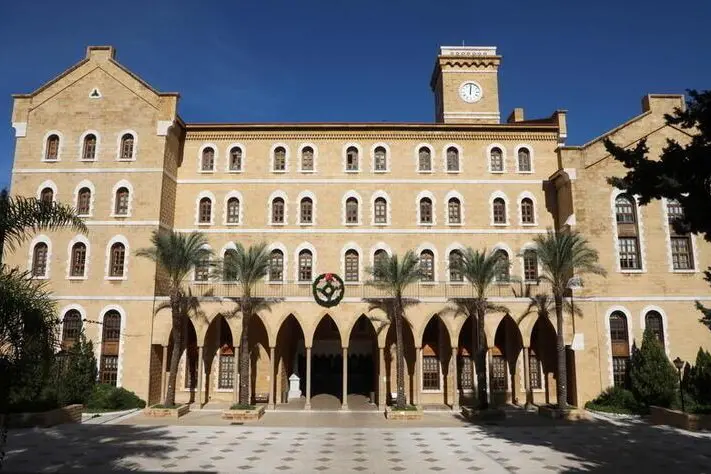PHOTO
The campus, made up of 64 buildings including the American University of Beirut Medical Center, will switch off its central air conditioning due to the shortage of fuel.
The move came into effect Monday in order to “prioritize critical functions especially at the medical center,” a letter sent to faculty and staff, seen by Arab News, said.
Human Resources Director Samar Diab Rouhana said the decision was due to “disruptions in fuel supplies in the country” and the fact that AUB’s fuel reserves have reached a critical threshold.
Rationing will stay in place until Aug. 22, she said, with “exceptions made for buildings that house critical laboratories and heat-sensitive materials and equipment.”
The university, which was founded in 1866, also requested all faculty and non-essential staff to work remotely from Aug. 13 until Aug. 20.
“In the meantime, the physical plant department will continue its efforts to secure fuel and rebuild the university’s fuel reserves,” the letter added.
The university could not be reached for comment.
Lebanon has faced months of severe fuel shortages that have caused hour-long lines at gas pumps and plunged the small Mediterranean country, dependent on private generators for power, into hours of darkness.
Meanwhile, the state-owned Electricité du Liban provider is barely providing two to three hours of electricity in most regions.
The shortages are blamed on smuggling to neighboring Syria, hoarding and the cash-strapped caretaker government’s inability to secure hard currency for fuel deliveries.
As the central bank’s foreign currency reserves reached a critical threshold, caretaker Prime Minister Hassan Diab gave an “exceptional approval” on June 25 to partially lift subsidies by financing fuel imports at the exchange rate of LL3,900 to the dollar “for the next three months,” to little effect.
Despite increasing the price of gasoline, the easing of the shortage crisis in the country was short-lived.
On Monday, tensions morphed into deadly violence at Lebanon’s gas that killed three men after knives, guns and a hand grenade were used.
Top Lebanese officials are set to meet today to discuss the future of subsidies, including the caretaker deputy prime minister, energy minister, economy minister and the central bank governor.
They will discuss a ration cards proposal to replace the current subsidies scheme for essential goods such as fuel, gasoline, medicine, and wheat.
Copyright: Arab News © 2021 All rights reserved. Provided by SyndiGate Media Inc. (Syndigate.info).





















